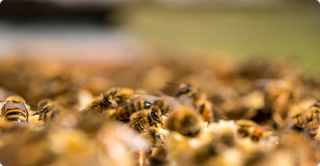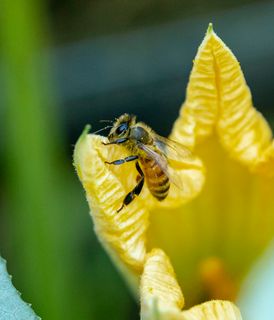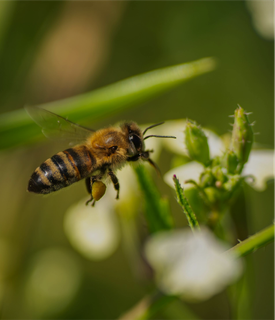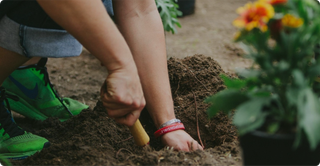NATURE'S FINEST POLLINATORS
Why bees matter

FROM ALMONDS TO APPLES, BERRIES, MELONS & MORE
Bees are responsible for pollinating one in three bites of food.
THE IMPORTANCE OF BEES
Agriculture & natural ecosystems
Bees are one of the most important types of pollinators in agriculture and natural ecosystems. Honeybees pollinate crops such as apples, cranberries, melons, broccoli, blueberries, cherries and almonds, to name just a few. This contributes over $14 billion to the value of U.S. crop production.

THE IMPORTANCE OF BEES
Pollination
Pollination occurs when pollen is moved within flowers or carried from flower to flower by pollinating animals. Without our pollinators, certain fruits, vegetables, wildflowers and trees would cease to exist.

The average worker bee makes 1/12 teaspoon of honey in her lifetime. And it's no easy task.
HOW BEES MAKE HONEY
A day in the life of a honeybee
01
Foraging worker bees fly from their hive (sometimes miles away) to gather nectar from flowers and other blooming vegetation.
02
Once enough nectar is collected, the bees bring it back to the hive.
03
The nectar is chewed up and deposited into honeycomb wax cells. The honey is still wet and not the familiar thick consistency.
04
Newly hatched worker bees vigorously “fan” their wings over the nectar, causing the liquid inside the cells to slowly dehydrate. The drying process, along with natural enzymes added to the nectar, transforms the relatively thin liquid into a much thicker honey.
